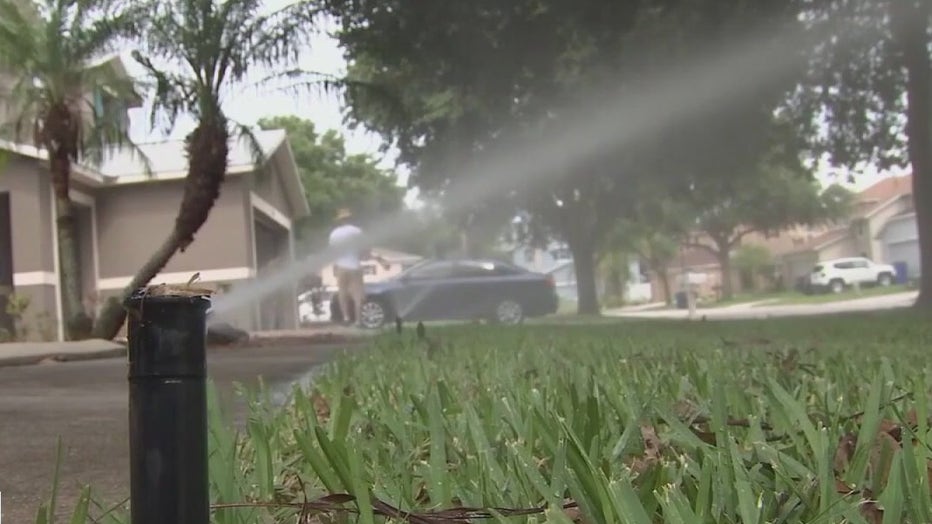Summer fertilizer bans in place for Bay area counties to prevent algae blooms
TAMPA, Fla. - Fertilizer bans went into effect in Hillsborough, Pinellas, Manatee and Sarasota counties Thursday and will last until Sept. 30. The bans are specifically on nitrogen and phosphorous fertilizers.
The stormwater runoff can cause environmental issues, like algae blooms.
"It’s a tragedy of the commons," Brandon Shuler, the executive director of American Water Security Project, said. "A lot of folks look at it, and it's like, ‘it's just my yard. It's not hurting anything,’ but the problem becomes when you take your neighbors’ and your neighbors’ and their neighbors’ yards and then put them all together."
READ: Seaweed piles in Florida may contain flesh-eating bacteria
The runoff, especially during the rainy season, can feed algae blooms, red tide and kill off seagrass, which manatees rely on as their main source of food. To prevent that, many local communities ban these types of fertilizers during the summer months.
"Using the fertilizer bans and reduced nitrogen loaded fertilizer is actually our first tool in the toolbox at mitigating big, harmful algal blooms and red tide events," Shuler said.
The Florida legislature, though, is trying to put the brakes on any new restrictions. Lawmakers recently added a new line to the budget restricting local governments from changing or adding any new fertilizer bans for the next year.
"Why would we pull out one of our most commonsense, easiest tools to fight nutrient loading into our water when we're spending millions of dollars on expanding the wastewater grant programs, stormwater grant programs and the blue-green algae task force? Why would we essentially hand the state a rope to actually start hurting ourselves more when we're doing all this work to get us away from that," Shuler said.
MORE: Environmentalists warn that recent Supreme Court ruling means more pollutants in waterways
Existing restrictions can stay, but no revisions can be made. It also sets aside $250,000 for scientists at the University of Florida to study the effectiveness of fertilizer bans.

"It's really scary to know that prohibiting to use the fertilizer during the summer months might be blocked because we really need that to be in place," Cora Berchem, Director of Multimedia for Save the Manatee Club, said. "That's something that everyone can really do to contribute, to help manatees and to help our waterways."
Berchem sees no need for such a study. She said the danger caused by the nutrients is clear.
"I don't really think that we need to wait anymore, to study anymore to see if that has an effect. We really need to do anything, everything we can right now to fix these things," she said.
The legislation, since it was inserted as part of the budget bill, means it will only be in effect for the duration of the budget, according to the president of the Florida Senate.
PREVIOUS: New breed of termites invading South Tampa
"I have comfort that it’s in the implementing bill, so it’s only one year," Senator Kathleen C. Passidomo, President of Florida Senate, said.
Governor Ron DeSantis could use his line-item veto to strike it, or he could sign it into law.
More than 50 environmental groups wrote a letter to the governor asking him to veto the provision. The governor’s office told Fox 13 Thursday it expects to provide an update on this in the next few weeks, but didn’t comment further.
Meanwhile, experts recommend using a slow-release fertilizer during the winter or spring. They also say pick up any debris or vegetation near storm drains year-round to stop it from entering the local waterways.


